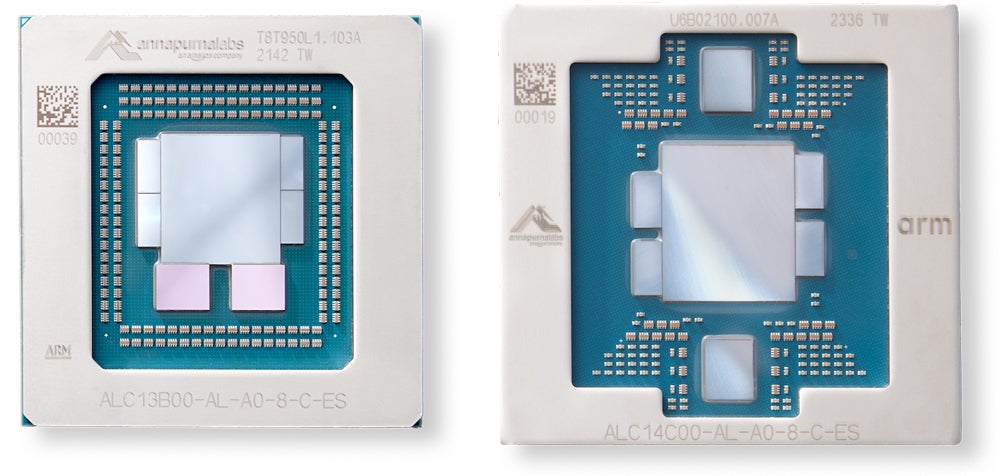
Amazon’s Elastic Compute Cloud R8g instances with the high-performance Graviton4 chips, which have been in preview since last November, are now open to use for anyone using AWS. AWS says it focused on energy efficiency in the creation of Graviton4, as well as power and performance.
R8g instances can be accessed in the U.S. East (N. Virginia), U.S. East (Ohio), U.S. West (Oregon) and Europe (Frankfurt) AWS regions.
Graviton-powered Amazon EC2 instances are AWS cloud instances for servers and data centers. The Graviton4 processor delivers up to 30% better performance than AWS Graviton3-based Amazon EC2 R7g instances, AWS said. That means Graviton4 processors are especially good for workloads that require a lot of memory, like high-performance databases, in-memory caches and real-time big data analytics.
If you’re looking to choose between processors for running cloud workloads on an Amazon EC2 instance, you’re probably considering Intel and AMD’s x86 architecture or the Graviton family (or Mac instances).
Amazon says R8g instances with Graviton4 have improved on R7g instances and Graviton3 in various ways:
R8g instances take advantage of offloaded CPU virtualization, storage and networking functions for better performance and security. R8g instances can host applications written in the major programming languages, as well as Linux-based workloads.
For the first time, Graviton instances will offer two bare metal sizes (metal-24xl and metal-48xl) in R8g instances.
SEE: Looking to brush up on AI and machine learning? AWS has resources for that.
AWS calls Graviton4 the most “energy efficient processor we have ever designed,” according to a press release. Ways in which AWS increased the efficiency of memory-intensive workloads using EC2 include offloading some CPU virtualization, storage and networking functions to dedicated hardware and software.
Along with choosing between chips, as mentioned above, organizations looking to host high-performance workloads on the cloud have several options. Amazon’s EC2 cloud computing instances compete with other infrastructure-as-a-service providers, such as:
Other Amazon cloud computing services may be appropriate, depending on the size of your workload.